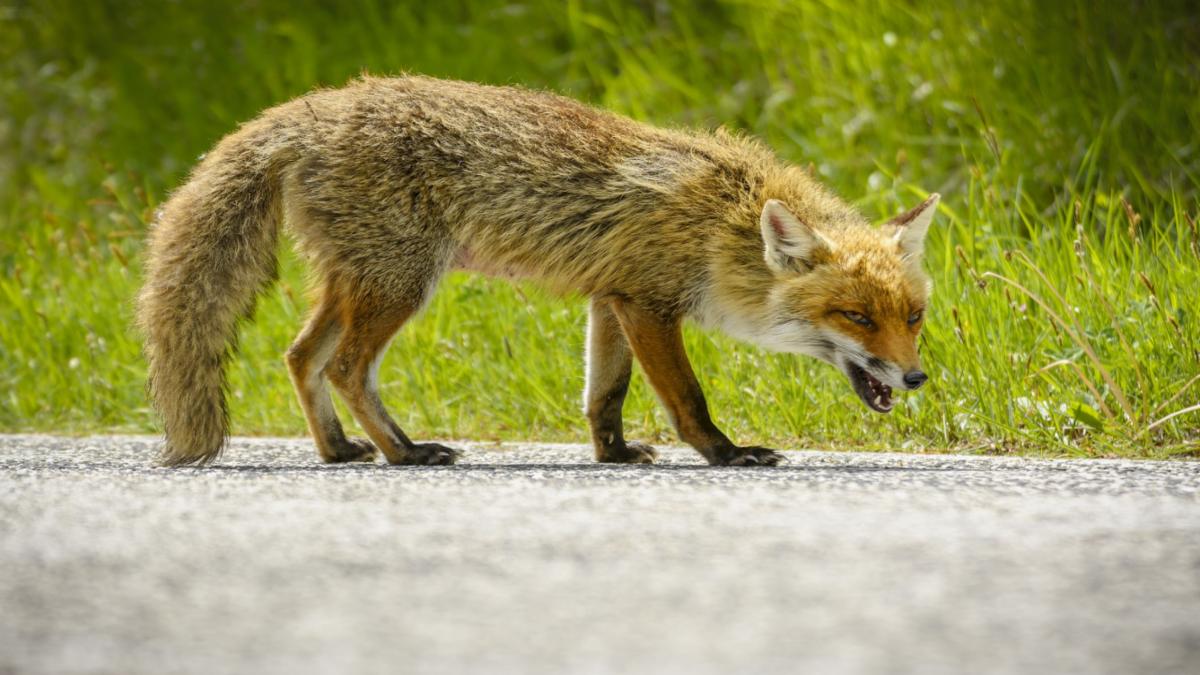Article Body
RALEIGH, N.C. — A normally quiet Raleigh neighborhood turned into the scene of a health emergency over the weekend after a wild fox bit a local resident and later tested positive for rabies, city officials confirmed Monday.
The incident occurred Saturday afternoon on Marathon Lane near Alenja Lane, a suburban residential stretch nestled in North Raleigh. According to the Raleigh Police Department, officers were dispatched following a 911 call reporting an aggressive animal attack. Upon arrival, responders found a disoriented fox behaving erratically and a resident suffering from a bite wound to the leg.
The injured individual, whose identity has not been released, was treated at a local urgent care center for minor injuries and is now undergoing post-exposure rabies prophylaxis as a precaution.
Wild Encounter in a Residential Zone
Neighbors told Galaxy Founder that the fox appeared “unusually bold,” weaving through front yards, approaching porches, and chasing pets before the attack.
“It didn’t look scared of humans at all,” said Lynn Reynolds, who lives a few houses down from the incident site. “It came right up to my dog and didn’t back down until we started yelling.”
Animal control officers captured the fox shortly after the bite incident, and it was euthanized for testing. On Sunday, the North Carolina State Laboratory of Public Health confirmed that the animal tested positive for rabies.
Health Department Issues Precautionary Guidance
Following confirmation of the rabies case, the Wake County Health Department has issued an advisory to residents in the affected neighborhood, urging anyone who may have come into contact with the animal—or seen pets interacting with wildlife—to report immediately.
“This is a serious public health concern,” said Dr. Marcus Pruitt, Wake County’s Director of Environmental Health. “Rabies is almost always fatal if left untreated. It’s critical that people don’t assume it’s just a scratch or minor bite.”
Authorities are canvassing the area to determine whether the fox may have interacted with other animals or people prior to the incident. Door-to-door notices were delivered Monday morning, and extra patrols have been deployed by Raleigh Animal Control to monitor for further sightings of wild or sick animals.
Understanding Rabies: A Persistent Threat
Rabies, a viral disease affecting the central nervous system, is typically transmitted through the saliva of infected animals via bites. Although rare in humans in the U.S. thanks to vaccinations and swift medical responses, wildlife remains a common source of outbreaks, particularly raccoons, foxes, skunks, and bats.
In North Carolina, rabies cases are reported annually, but human exposures are less frequent. The last confirmed rabid fox incident in Wake County occurred in late 2023, when two dogs were exposed in a similar suburban encounter.
“This isn’t a fluke — rabies is endemic in our wildlife populations,” noted Dr. Pruitt. “The key is to minimize interactions and report any suspicious animal behavior immediately.”
Community Response: Shock and Vigilance
The news of the rabid fox has rattled the Marathon Lane community, where families and pet owners are now taking extra precautions. Several residents have already scheduled vet visits to update their pets’ rabies vaccines, which are required by law in North Carolina.
“Normally I feel safe walking my dog, even at night,” said Kevin Morris, who lives across the street from the attack site. “But after this, we’ll be sticking to daylight hours, at least for a while.”
Local schools have also sent alerts to parents reminding them to educate children about staying away from stray or wild animals and reporting anything unusual to an adult.
City's Wildlife Watch Program Re-Activated
In response to the incident, the City of Raleigh is reactivating its seasonal “Wildlife Watch” initiative, which encourages residents to report sightings of aggressive or strange-acting animals via a dedicated hotline or the city’s mobile app.
“This is about prevention and awareness,” said Sgt. Haley Tran with Raleigh Animal Control. “While these events are rare, being prepared and informed can save lives — human and animal alike.”
City officials are also reviewing whether increased urban development near wooded areas may be leading to more frequent wildlife-human encounters. “We’re seeing habitat disruption, and these animals are adapting — sometimes in ways that bring them too close for comfort,” Sgt. Tran added.
What to Do if You See a Potentially Rabid Animal
Health experts advise that anyone encountering a wild animal showing signs of rabies — such as aggression, disorientation, excessive drooling, or lack of fear — should immediately call 911 or local animal control. Do not attempt to trap, feed, or scare the animal away.
Pet owners should ensure all pets are current on their rabies vaccinations and avoid leaving food outdoors that could attract wild animals.
If Bitten or Scratched:
-
Wash the wound thoroughly with soap and water.
-
Seek medical attention immediately.
-
Report the incident to your local health department and animal control.
Conclusion: A Stark Reminder of Wildlife Realities
While the image of a fox might often evoke thoughts of cunning woodland creatures in fairy tales, this weekend’s encounter is a harsh reminder that wild animals — even in suburban neighborhoods — can pose real dangers when infected with deadly diseases like rabies.
Thanks to quick action by authorities and prompt medical care, a more serious tragedy was avoided. Still, the incident has left residents shaken — and more alert.
As summer approaches and wildlife activity increases, the City of Raleigh urges everyone to stay informed, stay protected, and stay safe.


Comments